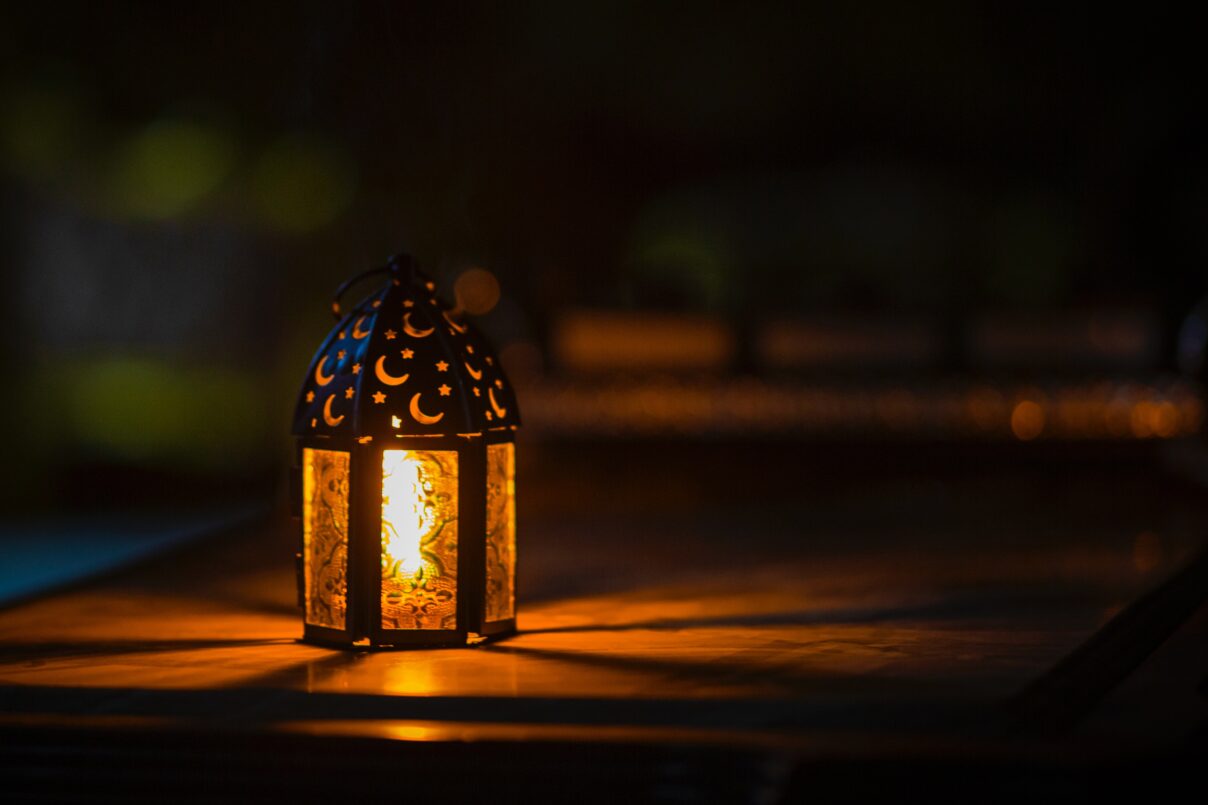Fasting during the month of Ramadan
Dr Mahshid Turner is the Muslim Chaplain within our Chaplaincy team. As Ramadan ends this week with the celebration of Eid ul-Fitr, Mahshid reflects on fasting and the significance of Ramadan for the Muslim members of our community.

Muslims choose to fast during the month of Ramadan because fasting is one of the main pillars of Islam. The acceptance of the Transcendent Being requires confirmation through submission.
The verses in the Quran tell us that this month prepares us more for accepting God’s guidance and becoming more God conscious.
The month of Ramadhan in which was revealed the Qur’an, guidance for mankind, and clear proofs of the guidance, and the Criterion [of right and wrong]
Quran, 2:185.
Ramadan therefore is not just about not eating, it is about obeying, trusting The All-Knowing, All-wise, All-powerful Sustainer who knows what is best for his creatures. This means that all Muslims from every corner of the world, who can, and choose to fast, willingly and actively go in a state of submission. This is the time when the ego or the self is trained. The normal routine is thrown out of the window, so to speak, and replaced by worship. Sleep is at an unusually different time, eating and drinking is only at specified times – times that most people are not habituated to. Everything is thrown upside down and topsy-turvy – so it appears to us creatures who lead a mechanized and robotic life that is demanded by our social norms. Ramadan breaks that endless wheel.
Muslims believe that obeying God has its rewards both in this world and the next. There are numerous benefits of which we have only touched the surface. Although Muslims do not fast for material benefits, nevertheless they know that what God asks them to do must ultimately be the best thing for them. Through the experience of fasting, they are given the opportunity to empathise with people who, through poverty, experience hunger. They are also given the opportunity to learn self-discipline. Although the food is right in front of them, they don’t eat it during the fasting period. They adapt to a new change of routine. Although at first everything seems upside down, resistance and abstention enables them to become stronger and more trained in accepting change.
According to the Quran, nothing is potentially more harmful to us than our own uncontrolled ego (Quran, 91:7-9). Ramadan is training time to keep the ego and its passions under control. Unlike the other acts of submission, such as prayer and pilgrimage to Mecca, fasting is less about doing and more about the opportunity to consciously return to our innate or untarnished state. It offers the opportunity to wipe away the stains of vanity from the mirror of our being in order to allow God’s names and attributes to reflect without distortion. This is why God says, ‘Fasting is for Me’. (Al-Bukhaari (1761) and Muslim (1946).)
Ramadan is such a blessed month, as it is a time of physical and spiritual healing, a time when old habits are ceased for a while, so that senses become sharpened and one is given the opportunity to become more connected to one’s own innate state of being, as well as to other human beings and creatures in the whole universe.

Find out more
- Read about all of our College and University chaplains
- If you’re interested in sharing your experience, find out how to submit a blog or vlog
